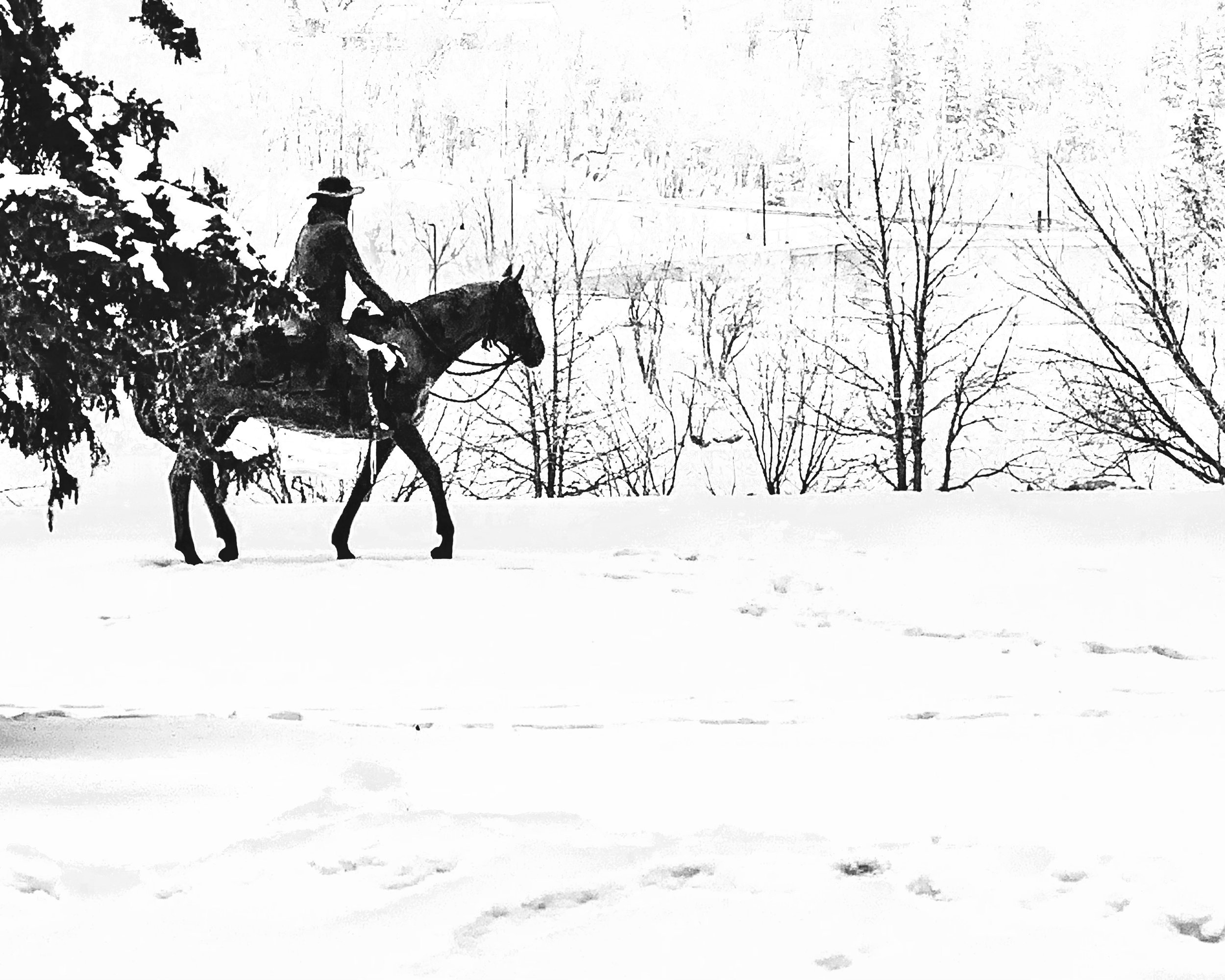Poem: The Horseman Came Riding
The horseman he came riding, riding he came.
Was he part of my future, my past, or the same?
I watched him from a distance, to see what he’d do.
Had he seen my confusion, had I come into view?
He seemed lost somehow, I could feel his dismay.
Was he coming back home, or finding his way?
He stopped for a moment, and gave me a nod.
Did he know me by name, or find me quite odd?
Finding the courage, I called out a greeting.
Should I have ignored this historical meeting?
The horseman he came riding, riding he came.
Was he part of my future, my past, or the same?
“Je m’appelle, Gabriel Dumont,” in Métis he spoke.
I held my tongue, hoping it was some kind of joke.
“Dumont died in 1906?” I called out to the sky.
I looked at him again, my mouth going dry.
A stone at his gravesite proves it, doesn't it?
“Stay calm, stay cool!”I said.“Don’t have a fit!”
I’d gone to Batoche, to ‘The Historical Site.’
I needed to see it, if I was going to write.
The horseman he came riding, riding he came.
Was he part of my future, my past, or the same?
For this kind of poetry, I wanted the truth.
Do research and more, be a bit of a sleuth!
I’d read the story of his life, it gave me a look.
‘Duck Lake’ and ‘Fish Creek’ were all in the book.
Two victories he won, Dumont showing his skills.
‘Le Petit,’ his gun taking aim over valleys and hills.
‘The NorthWest Rebellion’ to some was a crime.
The telling of its battles, put to rest for a time.
The horseman he came riding, riding he came.
Was he part of my future, my past, or the same?
“They gave me amnesty in 1886, you must know,”
Dumont said to me through the fog, and the snow.
“It’s too late for my friend,” he told me that day.
“They hung Reil for treason to make us all pay!”
“You are Métis, oui? He asked me to tell him.
Should I hide the truth, or go out on a limb?
He stared at me, as though he might know.
Would I run and hide, was it time to go?
The horseman he came riding, riding he came.
Was he part of my future, my past, or the same?
Then, in a blink of an eye, we went back in time.
Both of us on a hill at Batoche, making the climb.
“Stay close to the ground!” he said through the smoke.
“We’re running out of ammo, it’s no time to choke!”
The Canadian troops advanced, in red coats and boots.
Did Dumont know my blood ran with colonial roots?
I felt his concern, but was unsure of his pause.
Had I gone back to fight an Indigenous cause?
The horseman he came riding, riding he came.
Was he part of my future, my past, or the same?
‘The South Saskatchewan’ appeared once again.
With no sounds of gunfire, no wounded men.
“The enemy can’t kill me,” Dumont said with a grin.
“For my voice is still heard amid the bustling din.”
“Canada has changed, oui?” he said, opening a door.
“But have the hearts of men?” I asked, wanting more.
Did he know the Métis struggled in this city?
Did he know some offered nothing but pity?
He looked away, as he prepared to go.
I hoped he’d stay, but his silence said no.
Breathing in the frigid air, he turned to stone.
In the swirl of wind and snow, I stood alone
The horseman he came riding, riding he came.
Was he part of my future, my past, or the same?
JOAN ALMOND is a Canadian Writer and self-taught photographer. Mentored by Dan Needles and Joe Kertes, she has been encouraged to follow the ‘heart’ in her writing. A proud supporter of Canadian Society of Children’s Authors Illustrators and Performers, Joan’s great joy is reading and writing children’s literature. Joan is grateful to award-winning author, Marilyn Helmer who encouraged her to submit her work to Our Canada. The author now resides in, Saskatoon, Saskatchewan. Having driven 6,000 km. on her own, in the fall of 2021, to relocate to The West, Joan is sure she loves a good adventure!
“people stories” shares articles from Folklore Magazine, a Saskatchewan History & Folklore Society publication.


